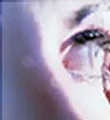A stroll outside on a sunny day is a great pick-me-up. Now it may also be just what the doctor ordered.
The benefits of nature for both body and soul are finding their way to the prescription pad as more health care providers are telling their patients to take a hike -- literally.
Many health care researchers and practitioners say that ecotherapy (also known as green therapy, nature therapy, and earth-centered therapy) -- a term coined by pastoral counselor Howard Clinebell in his 1996 book of the same name -- can have regenerative powers, improving mood and easing anxiety, stress, and depression.
But that’s not all. Health care providers are also giving their patients “nature prescriptions” to help treat a variety of medical conditions, from post-cancer fatigue to obesity, high blood pressure, and diabetes.
Scientists have long known that sunlight can ease depression, especially seasonal affective disorder (SAD). New research is expanding those findings. A 2007 study from the University of Essex in the U.K., for example, found that a walk in the country reduces depression in 71% of participants. The researchers found that as little as five minutes in a natural setting, whether walking in a park or gardening in the backyard, improves mood, self-esteem, and motivation.
The growing interest in ecotherapy has even given rise to academic programs, such as one begun at John F. Kennedy University, which offers a graduate-level certificate in ecotherapy, an umbrella term that includes horticultural therapy, animal-assisted therapy, time stress management, and managing “eco-anxiety.”
John F. Kennedy University ecotherapy professor Craig Chalquist, PhD, co-author of Ecotherapy: Healing with Nature in Mind, has acknowledged that research has not proven that spending time in nature can prevent, treat, or cure any particular condition.
But a growing body of research offers a “hopeful picture” of the effectiveness of ecotherapy, Chalquist says.
Kathy Helzlsouer, MD, director of the Prevention and Research Center at Mercy Medical Center in Baltimore, has long been recommending to breast cancer survivors that they get outdoors more.
For 30% to 40% of breast cancer survivors, persistent fatigue follows their treatment, says Helzlsouer. To help her patients learn how to manage this fatigue, Helzlsouer created “Be Well, Be Healthy,” a holistic program that includes tips not only on managing stress and improving diet and exercise patterns, but also on incorporating nature as part of the healing process.
“Among the frustrations we saw in our patients,” Helzlsouer says, “was that they didn’t have the energy to garden, a favorite activity for many of them.”
For people who enjoy gardening, Helzlsouer prescribes getting back outside, even if it’s starting out with five minutes of weeding. People who aren’t gardening enthusiasts are advised to find a nearby park where they can take a walk, "commune with nature," and reap the mind-body results of a relaxing setting and physical exercise.







 Quiz Stress? Anxiety? Take This Quiz.
Quiz Stress? Anxiety? Take This Quiz.  Article Treatment Resistant Depression
Article Treatment Resistant Depression  Article Schizophrenia 101
Article Schizophrenia 101  Slideshow Depression: Who's At Risk?
Slideshow Depression: Who's At Risk?  Article 11 Signs of Eating Disorders
Article 11 Signs of Eating Disorders  Slideshow Phobias: What Are You Afraid Of?
Slideshow Phobias: What Are You Afraid Of?  Slideshow How to Spot Postpartum Depression
Slideshow How to Spot Postpartum Depression  Article 8 Ways to Beat Depression Today
Article 8 Ways to Beat Depression Today  Article Why Aren't You Taking Your Depression Meds?
Article Why Aren't You Taking Your Depression Meds?  Article Suffering from Seasonal Fatigue?
Article Suffering from Seasonal Fatigue?  Slideshow Tips for Pain-Free Living With OA
Slideshow Tips for Pain-Free Living With OA  Feature Pets for Depression and Health Subscribe to WebMD Newsletters WebMD Daily Women's Health Men's Health Weight Loss Wisdom I have read and agree to WebMD's Privacy Policy. Submit Sign up for more topics! WebMD Special Sections Recognizing and Treating Depression Fibromyalgia: How to Manage the Pain At Home Health Solutions From Our Sponsors Vaccine Questions? Low Testosterone? Diabetes Care for Kids Birth Control for Moms Blood Sugar Control Bent Fingers? Diagnosed With Low T? Fibromyalgia & Exercise Depression & Adults Insulin Pump Therapy Vaccines for All Ages Knee Pain Relief Itchy, Scaly Skin? Hearing Aid Alternative Relapsing MS Help In-depth coverage: Psoriasis Treatment on Target?|Healthy Mouth Help|RA Assessment|Living Healthy Guide|Family & Pregnancy Toolbox|Check Your Heartburn Symptoms Find us on:URAC: Accredited Health Web Site
Feature Pets for Depression and Health Subscribe to WebMD Newsletters WebMD Daily Women's Health Men's Health Weight Loss Wisdom I have read and agree to WebMD's Privacy Policy. Submit Sign up for more topics! WebMD Special Sections Recognizing and Treating Depression Fibromyalgia: How to Manage the Pain At Home Health Solutions From Our Sponsors Vaccine Questions? Low Testosterone? Diabetes Care for Kids Birth Control for Moms Blood Sugar Control Bent Fingers? Diagnosed With Low T? Fibromyalgia & Exercise Depression & Adults Insulin Pump Therapy Vaccines for All Ages Knee Pain Relief Itchy, Scaly Skin? Hearing Aid Alternative Relapsing MS Help In-depth coverage: Psoriasis Treatment on Target?|Healthy Mouth Help|RA Assessment|Living Healthy Guide|Family & Pregnancy Toolbox|Check Your Heartburn Symptoms Find us on:URAC: Accredited Health Web Site